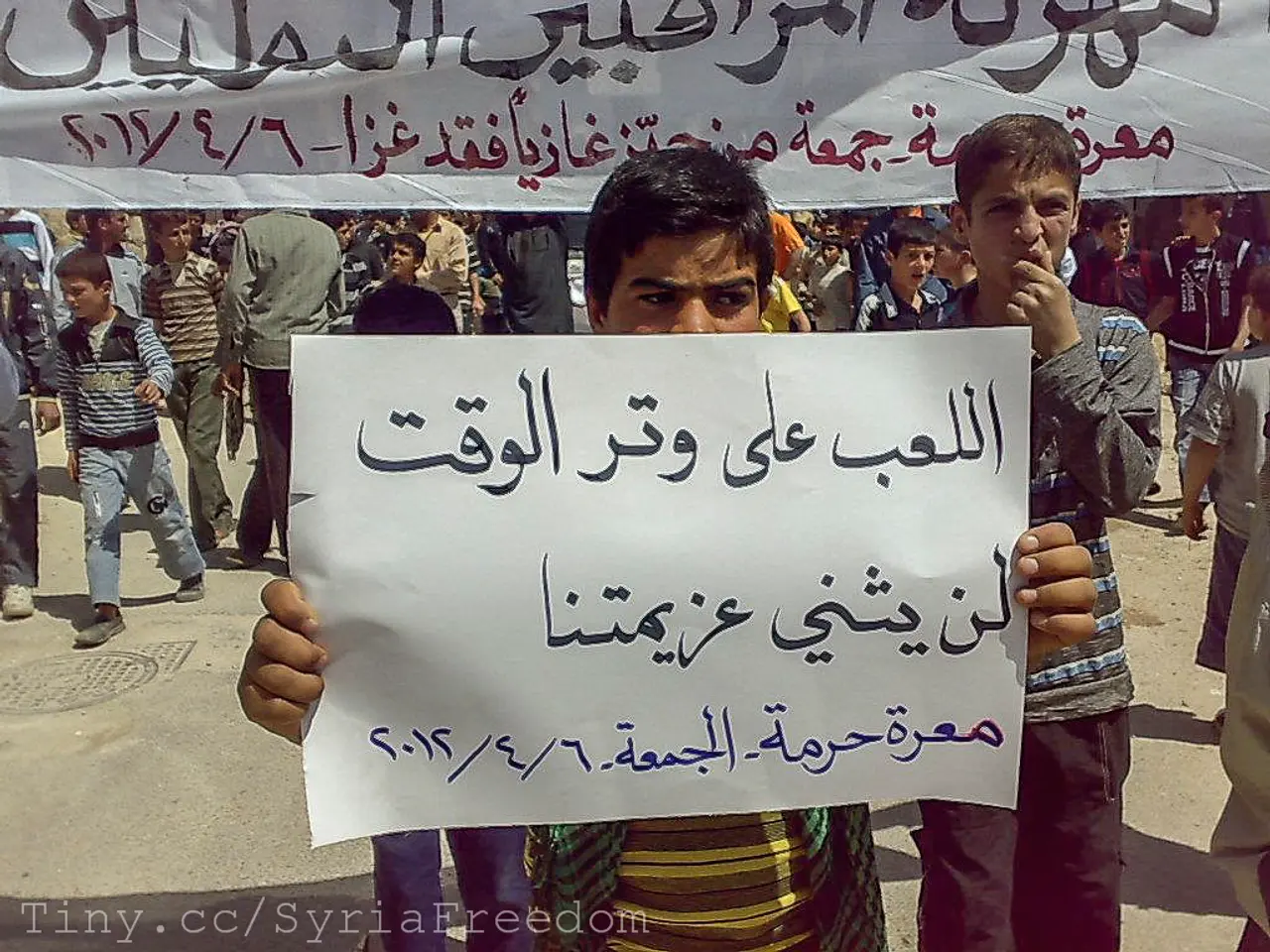United Kingdom Jewish community unites in opposition to Prime Minister's proposal for Palestinian statehood
In the heart of London, two significant protests took place over the weekend. Approximately 500 people gathered at Parliament Square, supporting Palestine Action, while Stop the Hate UK held a pro-Israel rally.
The anti-Israel protest, led by Palestine Action, ended with 10 to 15 arrests, following violence directed at the officers arresting them. On the other hand, the second national march organized by Stop the Hate concluded peacefully, with no reported arrests or violence.
The focus of the second national march was to raise awareness about the hostages' situation and urge their immediate release. Max Royston, a leader of Stop the Hate UK, expressed concern about Keir Starmer's policy, stating that the Labour Party leader did not set conditions for Hamas, which he believes makes the return of the hostages more difficult.
Starmer's stance is supportive of recognizing a Palestinian state as part of a negotiated, broader peace framework. However, pro-Israel advocates, such as Stop the Hate UK, criticize this move for potentially weakening peace efforts and encouraging extremist behavior. Critics argue that such recognition could undercut Middle East peace, contradict international law, and undermine previous agreements like UN Security Council Resolution 242 and the Oslo Accords.
Royston warned that if Starmer does not reverse his decision, Stop the Hate will continue to protest and raise awareness about the appeasement of terrorists. It is essential to note that Palestine Action is a prescribed terrorist organization in the UK, and they have been involved in graffitiing Jewish charity offices, stealing a bust of Chaim Weizmann, and attacking an RAF base.
The PSC National March for Palestine, which has been ongoing for two years, has been associated with antisemitic placards, support for Hamas, and support for Hezbollah. In contrast, the second national march organized by Stop the Hate did not involve any such displays.
The second national march organized by Stop the Hate did not mention any specific conditions for the recognition of a Palestinian state, focusing instead on the hostage situation. The march united various Jewish communities in the UK, including Sephardi, Ashkenazi, United Synagogue, Liberal, and Reform communities, in opposition to Starmer's policy.
The ongoing debate surrounding Starmer's planned recognition of a Palestinian state highlights the complexities of the Middle East conflict and the diverse opinions within the UK's political landscape. As the situation continues to unfold, it is crucial to maintain a balanced and informed perspective on the issues at hand.
[1] Keir Starmer's statement on recognizing a Palestinian state can be found at https://www.theguardian.com/politics/2021/may/17/labour-leader-keir-starmer-says-uk-will-recognise-palestinian-state
[2] Analysis from think tanks critical of this move can be found at https://www.cbsnews.com/news/britain-keir-starmer-palestinian-state-recognition-opposition/
- Against the backdrop of the ongoing debate, protests from both Palestine Action and Stop the Hate UK have raised concerns about Keir Starmer's policy towards recognizing a Palestinian state, with Stop the Hate UK criticizing it for potentially weakening peace efforts and encouraging extremist behavior.
- As part of politics and policy-and-legislation discussions, war-and-conflicts, crime-and-justice, and general news are increasingly intertwined, with protests like those held by Palestine Action and Stop the Hate UK shedding light on the complexities of the Middle East conflict and the diverse opinions within the UK's political landscape.





